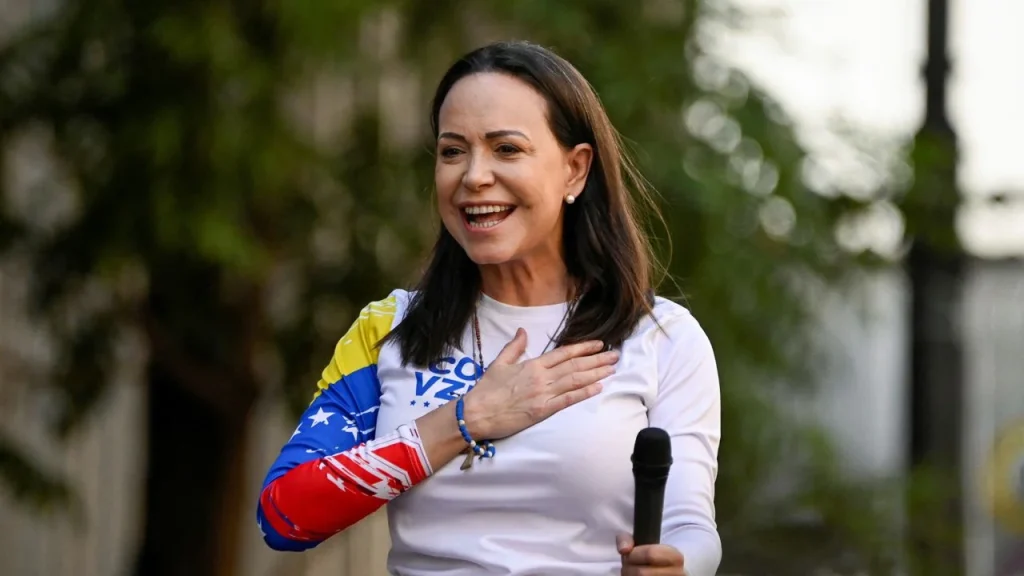On Friday, the Nobel Committee in Oslo recognized Machado for her unwavering efforts to promote democratic freedoms in Venezuela.
At 58, she has rallied a fragmented opposition against President Nicolas Maduro’s 12-year rule, widely criticized as authoritarian.
Maduro avoided commenting on the prize but sharply insulted Machado, calling her a harmful figure.
Machado, forced into hiding for much of the past year due to safety concerns, sees the award as a vital lift. “It’s a burst of hope and strength for Venezuelans, proving we’re not alone,” she told media.
The prize highlights the nation’s deep economic and humanitarian crises, amplifying calls for change.
Norway’s Diplomatic Response
Norway’s foreign ministry expressed regret over the embassy closure but emphasized ongoing engagement. “This is unfortunate, yet we aim to maintain open dialogue with Venezuela,” a spokesperson said.
They clarified that the Nobel selection process operates independently of the government.
This isn’t Norway’s first diplomatic hiccup tied to the Nobel Prize. Years ago, an award to a foreign dissident strained ties with a major power for nearly a decade.
The parallel suggests Venezuela’s move could signal a deeper rift, though Norway seeks to avoid escalation.
Venezuela’s Shifting Alliances
The Oslo closure coincides with other diplomatic changes. Venezuela also ended its embassy operations in Australia, a close U.S. partner, while opening new missions in Zimbabwe and Burkina Faso.
These African nations are viewed as allies in resisting external political pressures, reflecting Venezuela’s pivot toward non-Western partnerships.
Tensions with the U.S. have intensified recently. American naval operations targeting suspected drug trafficking from Venezuela have destroyed boats and caused casualties.
Venezuela and neighboring Colombia have condemned these actions as violations of international norms, fueling regional debates on sovereignty and enforcement.
Political and Global Implications
Machado’s Nobel win casts a spotlight on Venezuela’s turbulent politics. Barred from running in the 2024 presidential election, she endorsed a substitute candidate many believe rightfully won, sparking nationwide protests.
Maduro’s government retains control, but the prize could galvanize international pressure for democratic reforms.
The embassy closures signal Venezuela’s strategic retreat from Western capitals.
For Machado’s supporters, the award is a call to action, energizing a movement for fair governance. Yet it risks deepening divisions in a nation already strained by hardship.
Norway’s commitment to dialogue offers a faint hope for reconciliation. With heated rhetoric and closed embassies, the path forward remains uncertain.
Venezuela’s story of struggle, resilience, and global attention continues to unfold.
As Machado’s recognition reverberates, it underscores the power of individual voices in challenging oppressive systems.
The Nobel Prize not only honors her courage but also amplifies the aspirations of Venezuelans seeking a freer future. Whether this moment sparks reform or further isolation, the world watches closely.
READ ALSO: US Deports More West Africans to Ghana Amid Legal Challenge




















